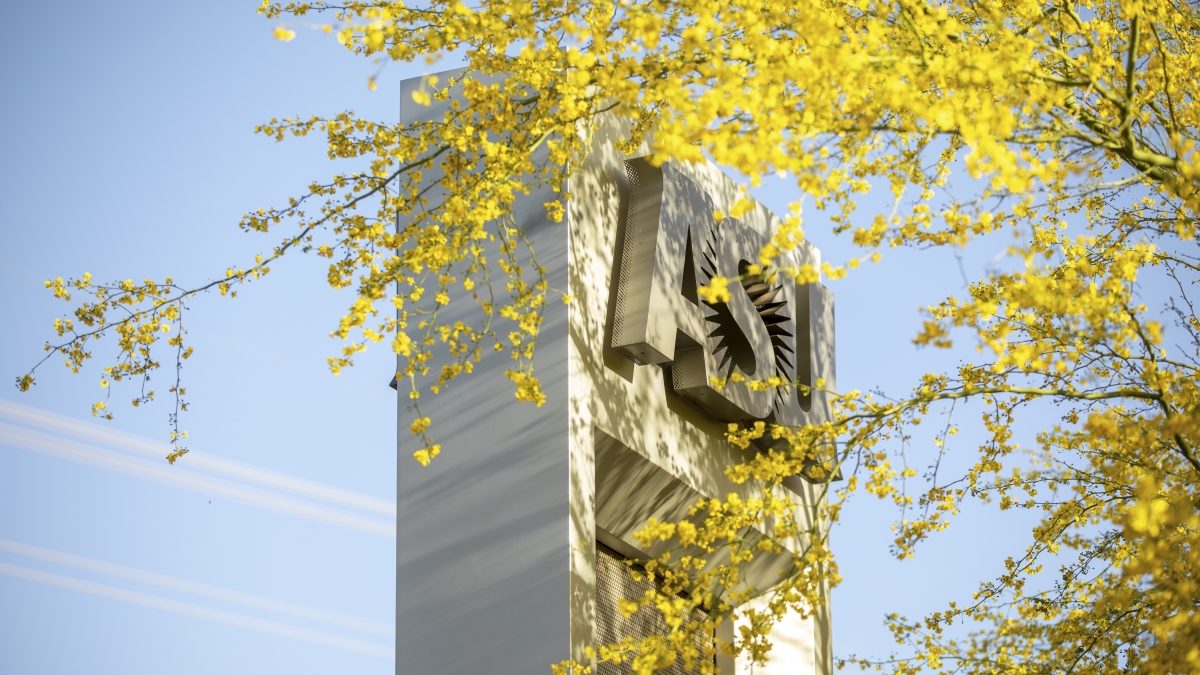ASU researchers awarded $1M grant to cultivate civic virtues in Arizona public universities

The mission of the Cultivating Civic Virtues through Action initiative is to cultivate civic character among undergraduates by emphasizing the practice of virtues that are crucial for engaged citizenship and flourishing democratic societies. ASU photo
Principled Innovation is the backbone behind a recent $1 million dollar grant award to a team of Arizona State University researchers for their project, Cultivating Civic Virtues Through Action.
Seeking to cultivate civic character and virtue among undergraduates at Arizona's public universities, the team aims to establish communities of faculty and student leaders engaged in ongoing social learning and dynamic dialogues on fostering virtue.
The award is an Institutional Impact Grant endowed through the Program for Leadership and Character at Wake Forest University and funded by Lilly Endowment Inc.
“Emphasizing the development and practice of moral and epistemic virtues crucial for citizenship and flourishing democratic societies, our initiative focuses on nurturing virtues such as civility, empathy, civic grace, humility and openness to diverse perspectives among undergraduates," said Joan McGregor, professor with the School of Historical, Philosophical and Religious Studies and newly appointed director of the Lincoln Center for Applied Ethics. "These goals neatly align with many of ASU’s design aspirations — in particular, Principled Innovation.”
McGregor joins three other researchers who are working on the project: Tyler DesRoches, associate professor with the School of Sustainability and associate professor of philosophy at the School of Historical, Philosophical and Religious studies; Cristy Guleserian, executive director of Principled Innovation at Mary Lou Fulton Teachers College; and Juliann Vitullo, associate professor with the School of International Letters and Cultures and co-director of the Humanities Lab.
Call for faculty participation
ASU’s Humanities Lab invites faculty at all levels interested in co-teaching a Humanities Lab course as part of the Cultivating Civic Virtues through Action initiative to visit: https://humanities.lab.asu.edu/Wake.Forest.Call.for.Faculty.Participation.
Those selected to comprise the interdisciplinary cohort of faculty leaders will collaborate to share tools, resources and strategies aimed at integrating character development seamlessly into both curricular and co-curricular experiences with the goal of immersing students in civic action.
The Humanities Lab, recent awardee of the 2024 ASU President’s Award for Innovation and pedagogical incubator for social challenge-based courses, will serve as the conduit for integrating the initiative goals into actionable outcomes that engage students.
“The Humanities Lab is honored to participate in the development of the communities of practice for this project over the next three years,” said Vitullo, adding that the courses will be available to students beginning in fall 2025.
“In the age of digital technology and AI, fostering good character in those behind the machines is more crucial than ever,” said DesRoches, who also serves as the deputy director of student success for the School of Sustainability, a unit of the College of Global Futures.
“The Principled Innovation toolkit and communities of practice cultivated through this work will serve as the cornerstone for fostering practical wisdom in future generations of Arizona students who will steward our collective futures,” Guleserian said.
More Arts, humanities and education

ASU’s Humanities Institute announces 2024 book award winner
Arizona State University’s Humanities Institute (HI) has announced “The Long Land War: The Global Struggle for Occupancy Rights” (Yale University Press, 2022) by Jo Guldi as the 2024…

Retired admiral who spent decades in public service pursuing a degree in social work at ASU
Editor’s note: This story is part of coverage of ASU’s annual Salute to Service.Cari Thomas wore the uniform of the U.S. Coast Guard for 36 years, protecting and saving lives, serving on ships and…

Finding strength in tradition
Growing up in urban environments presents unique struggles for American Indian families. In these crowded and hectic spaces, cultural traditions can feel distant, and long-held community ties may be…